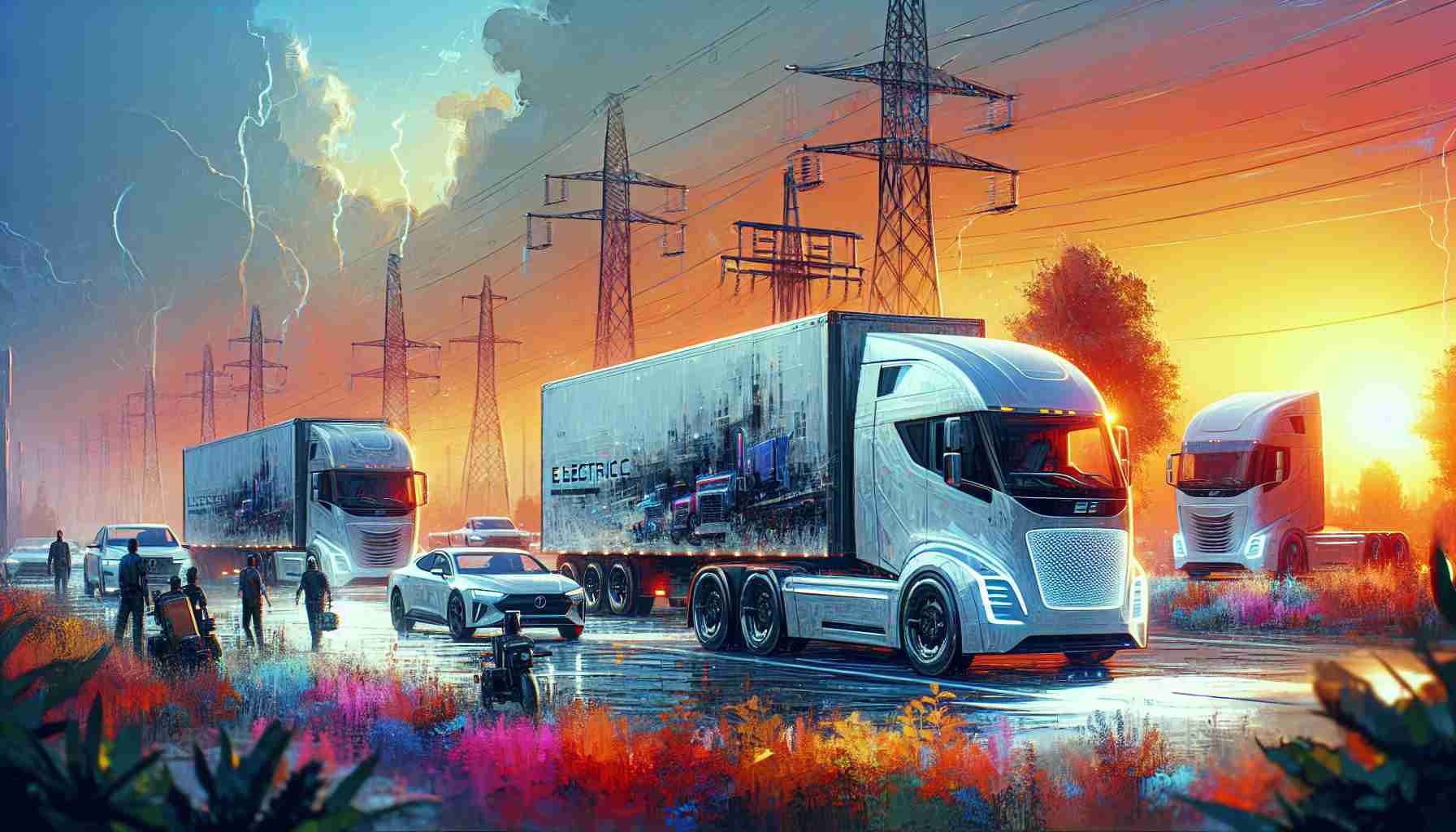A Green Tech Giant Finds a New Home in Riverside
In a landmark development for sustainable technology, Voltu Motor Inc., a pioneering manufacturer of medium-duty electric trucks based in Argentina, is setting up its global headquarters and manufacturing facilities in Riverside, California. This move, celebrated by job creation and economic growth predictions, is expected to generate over 400 direct jobs in the first four years, with potential expansion to 700 positions, and will support more than 1,200 indirect jobs.
Voltu’s new manufacturing site is poised to produce around 14,000 vehicles over the next three years, potentially reaping revenue of $1.6 billion. The choice of Riverside was strategic, considering its robust logistics infrastructure and strong alignment with Voltu’s values centered around sustainability and trust.
The Critical Role of UC Riverside
This milestone is the culmination of several years of support from UC Riverside (UCR). The university’s College of Engineering’s Center for Environmental Research and Technology, alongside its Office of Technology Partnerships, provided invaluable aid through California’s regulatory maze, obtaining essential certifications, and offering technology verification services.
UCR’s Vice Chancellor Rodolfo Torres and project advisor Nicole Cleary highlighted the university’s efforts through various programs to ensure Voltu’s success in California. Their initiatives helped the company adapt effectively to the market, pushing forward customer discovery and creating crucial partnerships.
Bridging Market Needs with Innovation
Voltu’s vehicles, built on an electric powertrain platform compatible with the Ford truck chassis, plug effortlessly into standard 220-volt outlets, bypassing the need for costly infrastructure upgrades. The city of Riverside, embracing this green transition, plans to integrate 20 Voltu trucks into its fleet.
This expansion complements California’s directive for zero-emission municipal vehicle purchases, solidifying Riverside’s status as a hub of clean technology innovation and setting the stage for a futuristic, sustainable automotive industry.
How Voltu’s Move to Riverside Signals a New Era in Clean Automotive Technology
Unveiling the Latest Developments in Electric Truck Innovation
Voltu Motor Inc.’s transition to Riverside, California, is more than just a strategic relocation; it’s a catalyst for profound changes in the electric vehicle (EV) industry and potentially, a step forward for global environmental health. But what makes this development particularly intriguing, and what are the implications for humanity and technology?
Interesting Facts and Controversies Around Voltu’s Expansion
Voltu’s strategic focus on medium-duty electric trucks aligns with current shifts in the automotive industry. Medium-duty trucks, typically responsible for a significant portion of urban vehicular pollution, are a critical target for emissions reduction. By driving innovation in this sector, Voltu is not only contributing to cleaner cities but is also shaking up the market dynamics dominated by traditional fuel-based truck manufacturers.
One point of interest is Voltu’s decision to use an electric powertrain platform compatible with Ford’s truck chassis. This move could spark debate over intellectual property and competition policies, considering Ford’s established presence in the American market. Could this partnership influence Ford’s future ventures into electrification?
Another potential controversy arises from Voltu’s substantial production goals, set to churn out around 14,000 vehicles in three years. With California’s stern environmental policies, maintaining compliance while scaling production will be a challenge. Will Voltu set a practical precedent for other companies, or will scaling compromise their sustainability goals?
Advantages and Disadvantages of Voltu’s Innovative Approach
The most palpable advantage of Voltu’s move is job creation. The initial 400 direct jobs, with potential growth to 700, alongside 1,200 indirect jobs, could rejuvenate Riverside’s economic landscape. However, the influx of workforce might lead to increased urbanization, potentially straining local resources and amenities.
The trucks’ compatibility with standard 220-volt outlets is another significant advantage, eliminating the need for costly infrastructure overhauls and making EV adoption more accessible. This could fast-track electrification in areas that lack the infrastructure for high-voltage charging stations.
On the downside, while standard outlets provide convenience, they also charge vehicles more slowly compared to specially designed EV charging stations. This might impact the efficiency of truck fleets in high-demand scenarios.
Shaping the Future: What Does this Mean for Global Sustainability and Technology?
Voltu’s foray into the U.S. and its collaboration with UC Riverside marks a stepping stone for academic and industrial partnerships. The success of such collaborations could pave the way for more universities aiding tech startups in navigating bureaucratic landscapes and technological challenges.
A question arises: how sustainable is this model of growth? As more regions seek to become hubs for green technologies, competition may ignite a race that could either foster innovation or lead to hasty, unsustainable urban expansions.
Future technological advancements could also emerge from this collaboration. Could advancements in Voltu’s manufacturing processes, spurred by UCR’s engineering expertise, lead to breakthroughs applicable across various industries?
In conclusion, while Voltu’s ambitious roadmap comes with its share of challenges, it holds promise for a future where clean energy vehicles become the norm. The ripple effects of this move could inspire shifts not only in the automotive industry but in global approaches to sustainable urban development.
For further insights on sustainable technology and automotive advancements, visit Tesla, a leading innovator in the electric vehicle sector.
